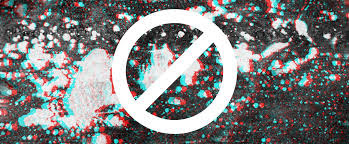The Question of Cancel Culture: part 3 of the unhealthy obsession of the rich and famous
Hey to all my readers here at Takeaway! I am here with the concluding post to "The Unhealthy Obsession of the Rich and Famous", where we will be talking about cancel culture and the PROBLEM with it. But first, what is cancel culture?
Merriam-Webster defines cancel culture as, "the mass withdrawal of support from public figures or celebrities who have done things that aren't socially accepted today." Some examples of people who have been "cancelled" in today's society are: JK Rowling for her transphobic comments, Kanye West for his racism and antisemitic comments and Will Smith (maybe. . .) for the infamous Chris Rock slap during the 2022 oscars.
Cancel culture might be a good way for celebirties to be taught cultural sensivity or the triggers in today's society, but what is cancel culture actually doing?
The first flaw with cancel culture is the finalility of someone's cancellation. . .is anyone truly cancelled? It could be completely impossible for a celebirty's fame, wealth and platform to be completely withdrawn just because of one instance. There are always going to be those fans (or stans) that will always forgive them for their shortcomings and continue to engage with their content.
For example, JK Rowling (whose cancellation is deserved, in my own opinion). As I mentioned earlier, the author of the beloved Harry Potter series fell under fire for transphobic comments. With some Harry Potter actors like Daniel Radcliffe, Rupert Grint and Emma Watson adressing Rowling's comments, other older Harry Potter actors with more conservative views had defended her. Also, Harry Potter is a billion dollar franchise. It's going to take a long time to take JK Rowling (one of the richest authors in the world) down.
Another point is that cancel culture might just be quite ineffective at its' mission. By cancelling these public figures, you are not standing up for the rights of marginalized people, you are simply giving them more publicity. Celebirties use outrage marketing in a way that will allow them to gain more of a fanbase when they speak out of turn. Engagement increases with controversy. So, instead of withdrawing their fandom and their spot in the world, cancel culture simply just amplifies their fame. While insensitivity must be corrected, cancelling a celebirty doesn't guarantee that they see the error in their words or actions. It'll just keep on encouraging that type of behavior as it is putting more money in their a thousand dollar pockets.
There is also the question of ultra-sensivity and how cancel culture can cultivate a toxic mob mentality. Are we being sensitive, or are we being not sensitive enough? The public must remember that these people in the public eye are simply that: people. People who have the whole world watching them. Celebirties should be allowed to make mistakes, and should be afforded the same benefit of the doubt and compassion that regular people are afforded. There doesn't always have to be an underlined bias or discrimination to every single action performed by someone as we as humans. . .we make mistakes! The only difference is that a celebirty's mistake is publicized while ours are able to be corrected without a mob of "activists" coming after us online.
Insider's article, Why cancel culture is so toxic and how to effectively hold folks accountable, according to social media experts, says: ". ..cancel culture shames the person into realizing their individual beliefs aren't always acceptable, but it fails to educate the person on why these beliefs are problematic and hurtful, which allows the hateful ideology behind cancellable offenses to exist unchecked." Unless they haven't learned from their past mistakes and still hold the same beliefs that they have expressed or continously make the same mistakes, then we truly need to cancel that public figure. It's completely okay to correct someone when they say something that is offensive, but no one can force a celebirty to take accountability for anything. That is their job, and that person has to make the autonomous move.
But in the grand scheme of things, cancel culture could be good in theory, but in execution, it is simply toxic and ineffective as it:
- Doesn't allow people to make mistakes.
- Perpetuates the same offensive behavior we are so-called "defending against".
- Is ineffective in the regard that no one gets their platform taken away.
I hope you guys enjoyed this post and were able to maybe take away something from this. If you are interested (or want to), make sure to share this post or follow me (if you have a blog). Sending everyone well wishes!
Ciao,
Miki ✌🏾



Comments
Post a Comment